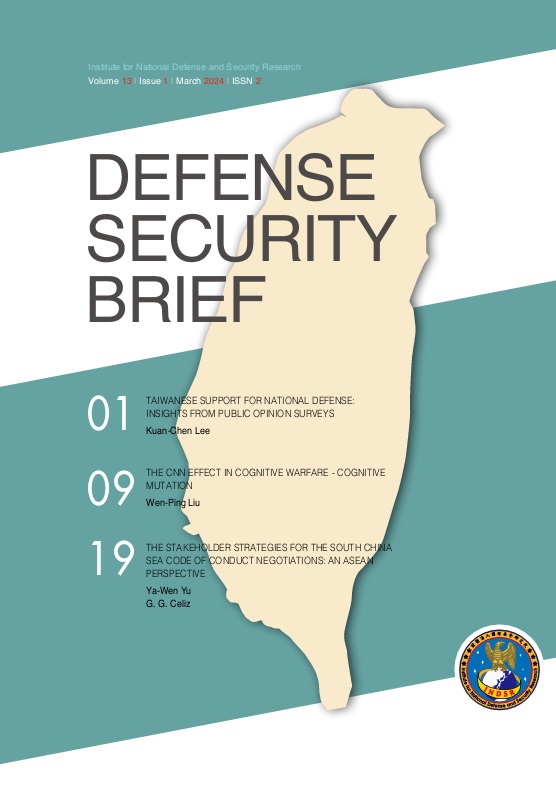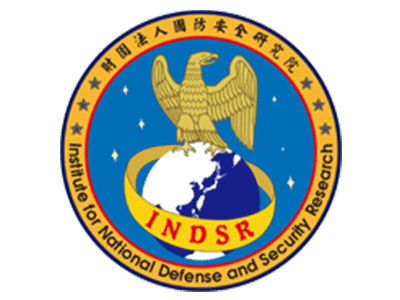THE CNN EFFECT IN COGNITIVE WARFARE - COGNITIVE MUTATION
2024.05.17
Views
1734
INTRODUCTION
Cognitive warfare has raised global concerns since 2015, with some significant events including the annexation of Crimea by Russia in 2014 and Russia's interference in the U.S. presidential election in 2016.[1]
Many have made efforts in the domain, and a lot of excellent articles have extensively discussed cognitive warfare recently.[2]However, the actual situation is that the various terms have not been standardized so far, such as whether cognitive warfare is the same as influence operations, psychological warfare,… etc., not to mention the further study of the various new concepts of cognitive warfare.
Another myth that has thrown cognitive warfare research into disarray is that scholars of cognitive warfare often focus on the aspect of "using messages to induce specific behaviors in the target audience over a long period of time.” However, as the goal of cognitive warfare attack is to change the audience's mind or cognition and make the audience change their behavior to favor the perpetrators, 'the long period of time' is not necessary to change the audience's behavior. The key point is changing the audience's behavior regardless if by long-time influence or short time. In other words, the phenomenon of a sudden change in cognition over a short period of time that results in a change in behavior has not received much attention from scholars. The author calls the phenomena “cognitive mutation”. After a lapse of many years, academic research on the issue of "cognitive mutation" not only lacks unified terminology and concept, but also lacks even a basic awareness of the issue.
If cognitive warfare perpetrators use shocking information to attack an audience that has not enough time to respond to the attack, letting the perpetrators achieve the goal, is this a kind of cognitive warfare attack?
In other words, research of cognitive warfare limited to 'long time influence' for understanding might neglect a case, or feature of 'cognitive mutation' in cognitive warfare which is induced by the CNN effect and which can also achieve the desired purpose by cognitive warfare operations.
This paper discusses the phenomenon of "cognitive mutation" induced by the CNN effect, and hopes to form a new concept of cognitive warfare research by analysis of practice events. By doing this, the paper aims to contribute to theories of cognitive warfare.
THE THEORETICAL BASIS OF BEHAVIOR CHANGE
Although there are various views on cognitive warfare, it is a common core argument that the transmission of information changes human cognition and then changes human behavior to the advantage of the initiator of cognitive warfare. As to how human behavior changes, various psychological or sociological theories can be used as the basis for explanation, which is a very important foundation in the study of cognitive warfare; because the field of cognitive warfare mainly affects human mental activities and its influence is very extensive, so, in addition to sociology and psychology, it can also be explained by political theories or other theories, and even by theories of communism.
Among the many sociological or psychological theories, we can pick out a few representative theoretical frameworks as follows:
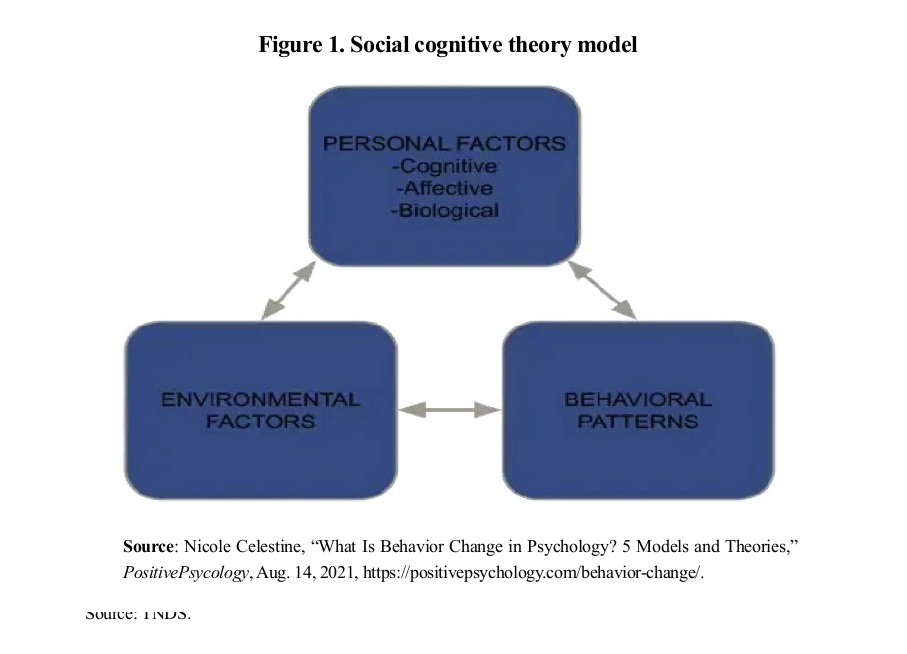
Figure 1 is very easy to understand, i.e., "personal factors", "environmental factors" and "behavioral patterns" work together to influence people's behavior.
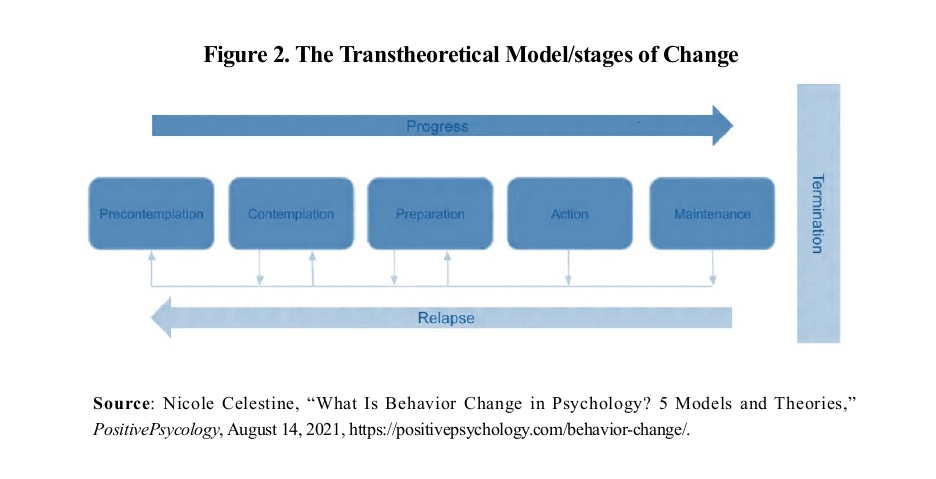
According figure 2, the six stages of change are:
1. Precontemplation: The individual is not intending to change their behavior because subjective and objective constraints make it impossible for the individual to perceive the need to change his or her behavior, or even because of experience of failure.
2. Contemplation: Wanting to change but having to bear pressure of failure.
3. Preparation: Actively preparing for change.
4. Action: Actively engaging in change.
5. Maintenance: Maintaining the results of change. It is important to note, however, that a relapse, or regression back to pre-change behavior, can occur at any stage in the process of changing behavior.
6. Termination: The change is complete and relatively stable.[3]
Compared to theories in political science, communism or other disciplines, psychological or sociological theories, which focus more on human behavior, reveal that behavioral change is not only influenced by the environment, messages, abilities, opportunities ...... and other contexts, but also relapses to the original behavioral patterns of the past due to a variety of changes in circumstances. In other words, behavioral changes can be long-term or short-term. The phenomena of behavioral change and relapse presented in Figure 2 are especially clear.
Theoretical perspectives on Communism, there probably is Antonio Francesco Gramsci's theory of cultural hegemony, and theoretical perspectives in political science, there is Joseph Samuel Nye's theory of "soft power", which can be used as a basis for the cognitive war to change perception and then behavior. These ideas of altered cognition leading to altered behavior are similar to the principles of cognitive warfare.
In accordance with Gramsci's essence of cultural hegemony: through social institutions such as education, the media, the family, religion, politics,… etc., the propagation of dominant ideologies -- the collection of worldviews, beliefs, assumptions, and values, laws, etc. -- realizes 'consent' to the dominant group's rule.[4]To put it simply, the ruling class uses various tools to disseminate specific cognitive information and to shape the general public's cognition in a specific way, so that the general public will eventually consider the various acts of the ruling class as reasonable and be submissive. According to Nye, there are three sources of "soft power": its culture (in places where it is attractive to others), its political values (when it lives up to them at home and abroad), and its foreign policies (when they are seen as legitimate and having moral authority). According Nye, when a country’s culture includes universal values and its policies promote value and interests that others share, it increases the probability of obtaining its desired outcomes because of the relationships of attraction and duty that it creates. Cultural influence is more powerful than the others, Nye emphasizes the process of changing the target with "soft power", focusing on culture as the core, focusing on the attraction of nurturing to change the audience's perception and ultimately the behavior of the target.[5]
The theoretical statements of sociology, psychology, political science, and even communism all focus on influencing the audience over a long period of time, ultimately resulting in a change in their cognition and behavior. As a result, the researcher or the general public can unknowingly fall into the myth that a war of cognition must be fostered over a long period of time by means of a message to the audience, so as to bring about a change in the audience's cognition before a change in their behavior can be achieved. However, a closer look at the purpose of cognitive warfare reveals that its primary purpose is behavioral change, and it is not concerned with whether or not behavioral change can be sustained, or how long it takes to bring about behavioral change. Thus, cognitive warfare is not necessarily limited to understanding that long-term cognitive change is sufficient to change behavior.
CNN EFFECT AND COGNITIVE MUTATION
In actuality, the attacker may only need to make the audience change their cognition and do something favorable to the attacker at the critical moment in order to accomplish the purpose of cognitive warfare. Therefore, in the field of cognitive warfare research, we should not ignore the pursuit of the target audience with the aim to change their cognition in a short period of time, and to perform behaviors that are beneficial to the attacker at the critical moment. The process of sudden cognitive change and behavioral change in a short period of time can be called "cognitive mutation," when the audience changes their behavior in a short period of time due to a time-critical, high-impact message.
What is the reason for the short-term and hasty change of audience perception? The author believes it is the “CNN effect.”
What is the CNN effect?
Although the CNN effect has been discussed in academic circles for many years, some scholars have argued that more evidence is needed to prove the existence of this effect, but it is accepted that it is real.[6]
Some scholars insist the "CNN effect" study suggests that the media determines how and what news is reported, and that these processes mean that news content is only disseminated to the public after it has been filtered and scrutinized by media companies, and that it influences government policymaking through its constant repetition and widespread dissemination;[7]In the field of cognitive warfare, the CNN effect has the characteristics of being filtered, scrutinized, fast, simple, rough, and directional by (media companies), and this characteristic has been deepened in contemporary society where 3C products are widely available. The impact of the CNN effect on cognitive change has gone beyond the commonly held notion that prolonged immersion alters cognition, and has been characterized by sudden, media-driven changes that make it difficult for the audience to make rational judgments and to react irrationally in a hurry. It's important to note that the so- called “CNN effect” has long gone beyond the traditional media reach, and as the popularity of 3C products has expanded to many social media outlets, the effect has expanded to include the influence of various social media outlets on their audience.[8]This kind of blitzkrieg, "hit-and-run" war of perception is obviously extremely difficult to defend against before something happens, and it's highly appropriate in the heat of an election. The most common and consistent scenario in Taiwan to influence the public to make voting decisions in favor of the organizers in the runup to election day is the pre-election "campaign rally activity ( 造勢 )". But the “CNN effect” should not be limited to "rally activity " alone.
In terms of the “CNN effect” in Taiwan's past elections, in addition to the usual "rally activity", famous cases include: The "Two Bullets"( 兩顆子彈) incident during the 2004 presidential election (Took place in the afternoon of March 19, 2004, and the presidential election was on March 20); The "paid walkers"( 走 路 工 ) in the 2006 Kaohsiung mayoral election (which occurred late at night on December 8, 2006, and the mayoral election vote was held the next day); On the eve of the 2016 presidential and legislative elections, Zhou Ziyu( 周子瑜 ), a Taiwanese member of the South Korean girl group TWICE, was reported by China-based celebrity Huang An ( 黃安 ) to be a "Taiwan separatist" for raising the national flag of the Republic of China (ROC), triggering a boycott by Mainland Chinese netizens. On the night before the election (the night of January 15, 2016, voting for the presidential election was next day ), JYP Entertainment arranged for Zhou Ziyu to make a public apology in a recorded video, triggering a large portion of the Taiwanese public to be furious at the Mainland's suppression of Zhou Ziyu. After the election, TVBS released a poll saying that the Zhou Ziyu incident had triggered an increase of 4% in the number of people who voted, equivalent to 500,000 votes; Taiwan Think Tank released a poll saying that 11.9% of the respondents were affected by the Zhou Ziyu incident in terms of voting choices for regional legislature members; and 11.4% of the respondents were affected by this incident in terms of choices for party votes, thus hitting the election results of the Kuomintang (KMT) hard.[9]Prior to the 2020 presidential election, before the end of 2019, the Wang Liqiang( 王立強 ) espionage case was the focus of attention (it occurred in November 2019, the presidential election was on January 11, 2020); after a long investigation, ultimately. no one was prosecuted and punished,[10]and the case has been questioned by a number of parties as an election operation. Also, on the eve of the 2024 election, CNN reported that Taiwan's famous band Mayday was supposedly pressured by the Communist Party of China (CCP) to take a stand in support of Beijing's "One China" statement (which took place on December 28, 2023, and voting in the presidential election was on January 13, 2024), which could be seen as an attempt to replicate the effect of the Zhou Ziyu incident.[11]In order to prevent the “CNN effect” from occurring, the Taiwan media also countered by reminding voters not to be deceived.[12] These cases had a significant impact on the election results in Taiwan.
These cases show that the “CNN effect” should not be limited to a short period of time, but should also take into account the complexity of the incident and the ease of clarification. In other words, even if the time is not too short, but the complexity of the incident is such that the attacked party is unable to clarify in a short period of time, the effect of influencing the audience to make irrational responses and achieve a sudden change in perception can be achieved. For example, the aforementioned incident of Wang Liqiang was not only outside the country but also involved a highly confidential case of espionage, which is obviously more complicated in terms of verification and clarification than the “two bullets,” the “walkers' incident,” the Zhou Ziyu incident, and the Mayday incident. Therefore, the cognitive mutation time of the Wang Liqiang incident could be lengthened. The chance of cognitive mutation is relatively lower for other events where the attacked party can be clarified if the time is lengthened. Therefore, the cognitive mutation generated by the “CNN effect” is based on the interplay of the two variables "Complexity of the Incident" and "Response Time ", which can be summarized in the following table.
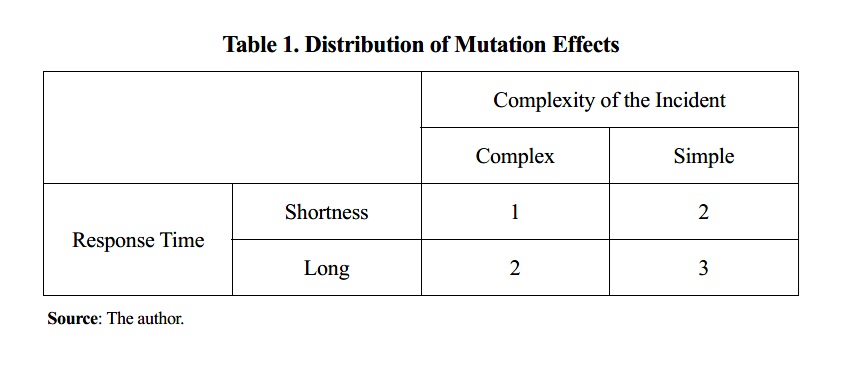
The cognitive mutation strength of the “CNN effect” is necessarily stronger in the case of short response time and extremely complex events in block number 1 than in the case of long response time and simple complexity of events in block number 3. As for the cases with different response times and event complexity, such as block number 2, the cognitive mutation strength of the “CNN effect” is between block 1 and block 3.
From this discussion, it can be deduced that any message that can cause the audience to make hasty decisions due to time pressure or inability to consider rationally can be categorized as a “CNN effect”. As a result, it is conceivable that a “CNN effect” attack could be launched at any time to influence leaders, military personnel, managers, police officers, the general public ... to make hasty and wrong decisions that could lead to social disruption, chaos, or national disorder, … etc. Therefore, the utilization and prevention of “CNN effect” is the same as the utilization and prevention of cognitive warfare, there is no distinction between wartime and peacetime, it can happen anytime and anywhere.
The message sent by the “CNN effect” is also similar to that sent by other forms of cognitive warfare, in that its effects do not follow exactly the settings of the attackers, and may be counterproductive or ineffective. Therefore, there are obvious challenges in choosing the messages to send, and it is worth exploring whether the discovery of "deception" by the audience will lead to a diminishing marginal benefit in the audience's response to similar messages in the future.
CONCLUSION: CHALLENGES TO CONCEPTUALIZATION OF COGNITIVE CHANGE
The “CNN effect” is, of course, concerned with irrational decisions made in a short period of time and in a hurry, but proposing this concept must be challenged by the following unresolved issues:
How short is the so-called "rush" time?
Can the audience react to a particular message in the direction expected by the cognitive warfare initiator?
Faced with diminishing marginal benefits or irrational responses from the public after being deceived, does the trust in the initiators decrease, or is the most important sense of trust in sending messages in the cognitive warfare even destroyed, so that the initiators will be constrained in the cognitive warfare in the future? The initiators may even lose the ability to initiate cognitive warfare.
Do the blamed “CNN effect” beneficiaries have a more covert manner after being blamed?
How does the complexity of the incident interact with response time? This remains to be studied.
These are the issues that must be further investigated in cognitive warfare research regarding the cognitive mutation-CNN effect, which needs to be integrated across countries and disciplines in order to prevent cognitive mutation from occurring and to safeguard people’s right to know.
Although there are many issues that need to be researched, the cognitive war initiators will not wait for us to research clearly before launching attacks in the form of cognitive mutation. In the face of the threat of cognitive mutation, what the governments of various countries need to do urgently at present in the face of the attack of cognitive mutation is to make a quick response, publish the truth as soon as possible, so that the real situation can be presented quickly, and try to minimize hasty decision-making and erroneous decision-making due to the "CNN effect". This is clearly a task that governments must endeavor to engage in at the present time.
Today, when global cognitive warfare research has just begun, clarifying individual concepts and building an overall theory really requires the efforts of all parties.
[1] Niklas Nilsson, Mikael Weissmann, Björn Palmertz, Henrik Häggström, “Security Challenges in the Grey Zone: Hybrid Threats and Hybrid Warfare,” in Mikael Weissmann, Niklas Nilsson, Björn Palmertz, Per Thunholm ed(s), Hybrid Warfare: Security and Asymmetric Conflict in International Relations (Ireland: Bloomsbury Publishing, 2021): 3 ; Gregory F. Treverton, “An American View: Hybrid Thread and Intelligence,” Weissmann et al. Hybrid Warfare Security and Asymmetric Conflict in Inational Relations, 37.
[2] See Dean S. Hartley, Kenneth O. Hobson, Cognitive Superiority (Switzerland: Springer, 2021); Alexander Kott, ed, Battle of Cognition (Westport: Praeger, 2007); Joshua Kurlantzick, Charm Offensive (New Haven: Yale University, 2007); Duncan J. Watts, Small Worlds (New Jersey: Princeton University Press,1999); Freder-ick T. C. Yu, Mass Persuasion in Communist China (New York: United States of America, 1964); Keith Dear, “Artificial Intelligence, Security, and Society,” in Timothy Clack and Robert Johnson ed(s), The World Infor-mation War (Y.N.: Routledge, 2021), 231-255; Keir Giles, “Russia Information Warfare,” in Clack and Johnson ed(s), The World Information War, 139-161; “Journalism, 'Fake News' and Disinformation: A Handbook for Journalism Education and Training,” UNESCO, https://en.unesco.org/fightfakenews.
[3] Nicole Celestine, “What Is Behavior Change in Psychology? 5 Models and Theories,” PositivePsycology, Aug. 14, 2021, https://positivepsychology.com/behavior-change/.
[4] Nicki Lisa Cole, “wen hua ba quan de jie ding [ 文化霸權的界定 Definition of cultural hegemony],” Eferrit, https://zhtw.eferrit.com/%E6%96%87%E5%8C%96%E9%9C%B8%E6%AC%8A%E7%9A%84%E7%95%8C%E5%AE%9A/.
[5] Nye, Soft Power: The Means to Success in World Politics (New York: PublicAffairs, 2004), 11-15.
[6] Eytan Gilboa, “The CNN Effect: The Search for a Communication Theory of International Relations, Political Communication vol. 22, no. 1 (2005): 27-44. Gilboa E, Jumbert MG, Miklian J, Robinson P., “Moving Media and Conflict Studies beyond the CNN Effect,” Review of International Studies 42, no. 4 (2016): pp. 654-672.
[7] Kaouthar Benabid, “What is the CNN Effect and Why is it Relevant Today?”, Al Jazeera Media Institute, Feb. 22, 2021, https://institute.aljazeera.net/en/ajr/article/1365.
[8] Fenstermacher, D. Uzcha, K. Larson, C. Vitiello, S. Shellman, “New perspectives on Cognitive Warfare,” SPIE, Jun. 14, 2023, https://www.spiedigitallibrary.org/conference-proceedings-of-spie/12547/125470I/New- perspectives-on-cognitive-warfare/10.1117/12.2666777.short.
[9] cai jia yun[ 蔡佳妘 ], “bao bing gui piao 、zou lu gong 、319qiang ji an …hui gu na xie nian xuan qian zhi ye zhen han dan: ‘zhe jian shi’ rang suo you tai wan ren dou nu le [ 抱病跪票、走路工、319 槍擊案 … 回顧那些年選前之夜震撼彈:『這件事』讓所有台灣人都怒了 ],” feng chuan mei [ 風傳媒 ], Nov. 22, 2018, https://www. storm.mg/lifestyle/644019?page=2.
[10] xue yi jia, lin zhi jian[ 薛宜家,林志堅 ], “xiang xin fu fu she wang li qiang gong die an gao jian que ding bu qi su[ 向心夫婦涉王立強共諜案 高檢確定不起訴 ],” gong shi xin wen wang [ 公視新聞網 ], Aug. 17, 2023, https://news.pts.org.tw/article/651931.
[11] “zhong guo shi ya wu yue tian CNN:tai wan guan yuan zhi yi ren zao kong qian da ya [ 中國施壓五月天 CNN:台灣官員指藝人遭空前打壓 ],” CNA, Dec. 28, 2023, https://www.cna.com.tw/news/ aipl/202312280377.aspx.
[12] zhu bi shi[ 主筆室 ], “zhong pang kuai ping: wu yue tian zao shi ya ting Zhong? kong pa you shi chu kou zhuan nei xiao [【重磅快評】五月天遭施壓挺中? 恐怕又是出口轉內銷 ], lian he bao[ 聯合報 ], Dec. 28, 2023, https://udn.com/news/story/123307/7672569.

